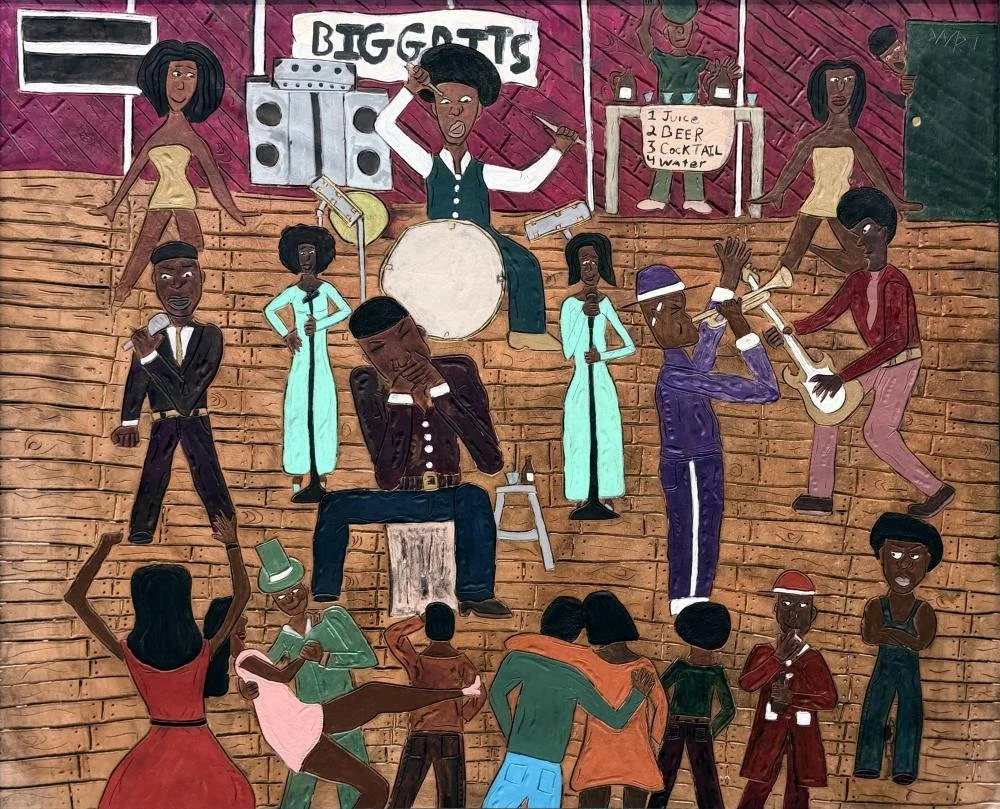Custom Artwork by Winfred Rembert Jr.
-
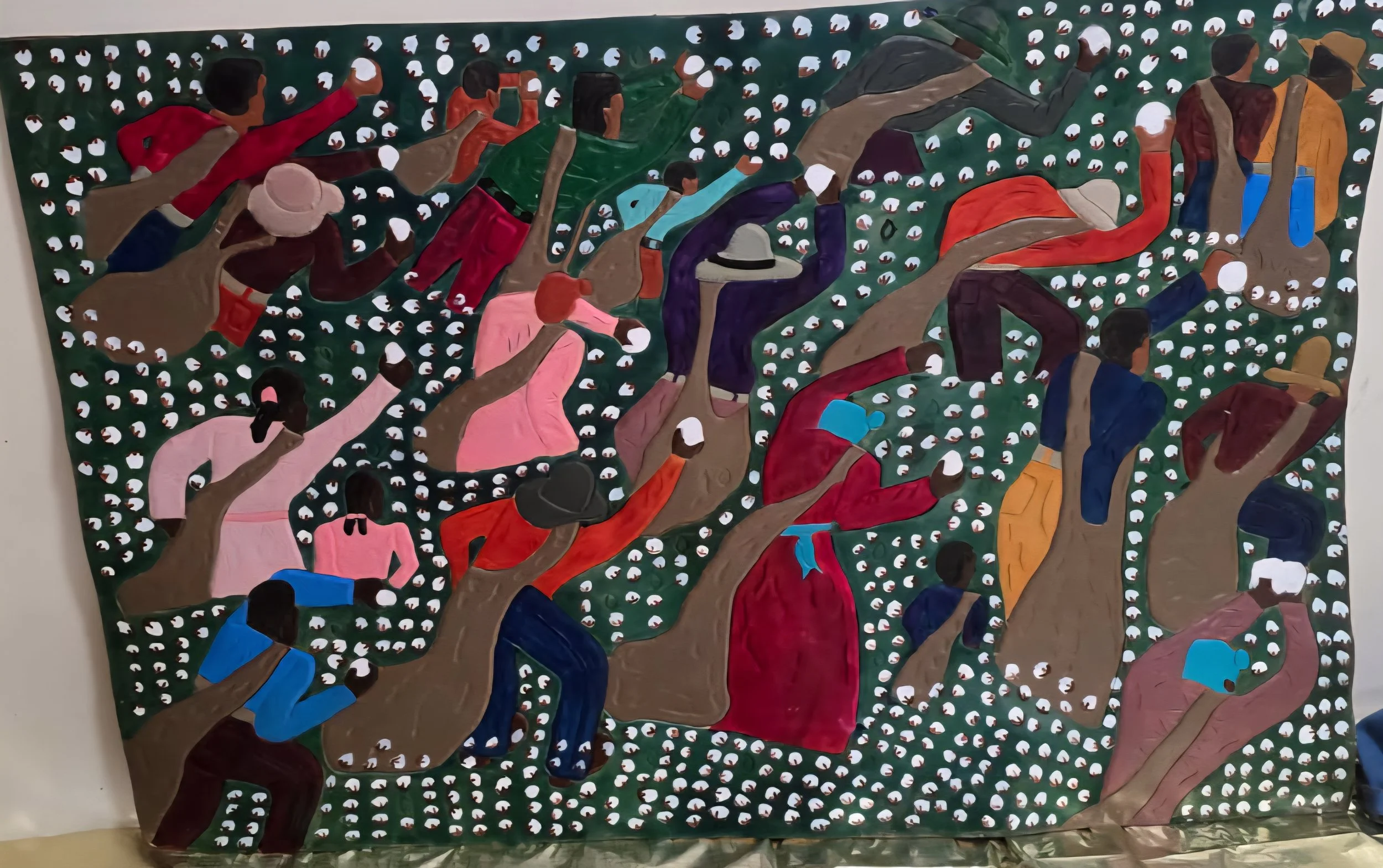
Rhythm of the Cottonfield.
A large-scale, visually commanding work depicting collective labor through rhythm and motion. The composition transforms repetition into movement, emphasizing shared experience over individual identity. This piece stands as a defining example of the artist’s narrative practice.
Available via auction placement.
-
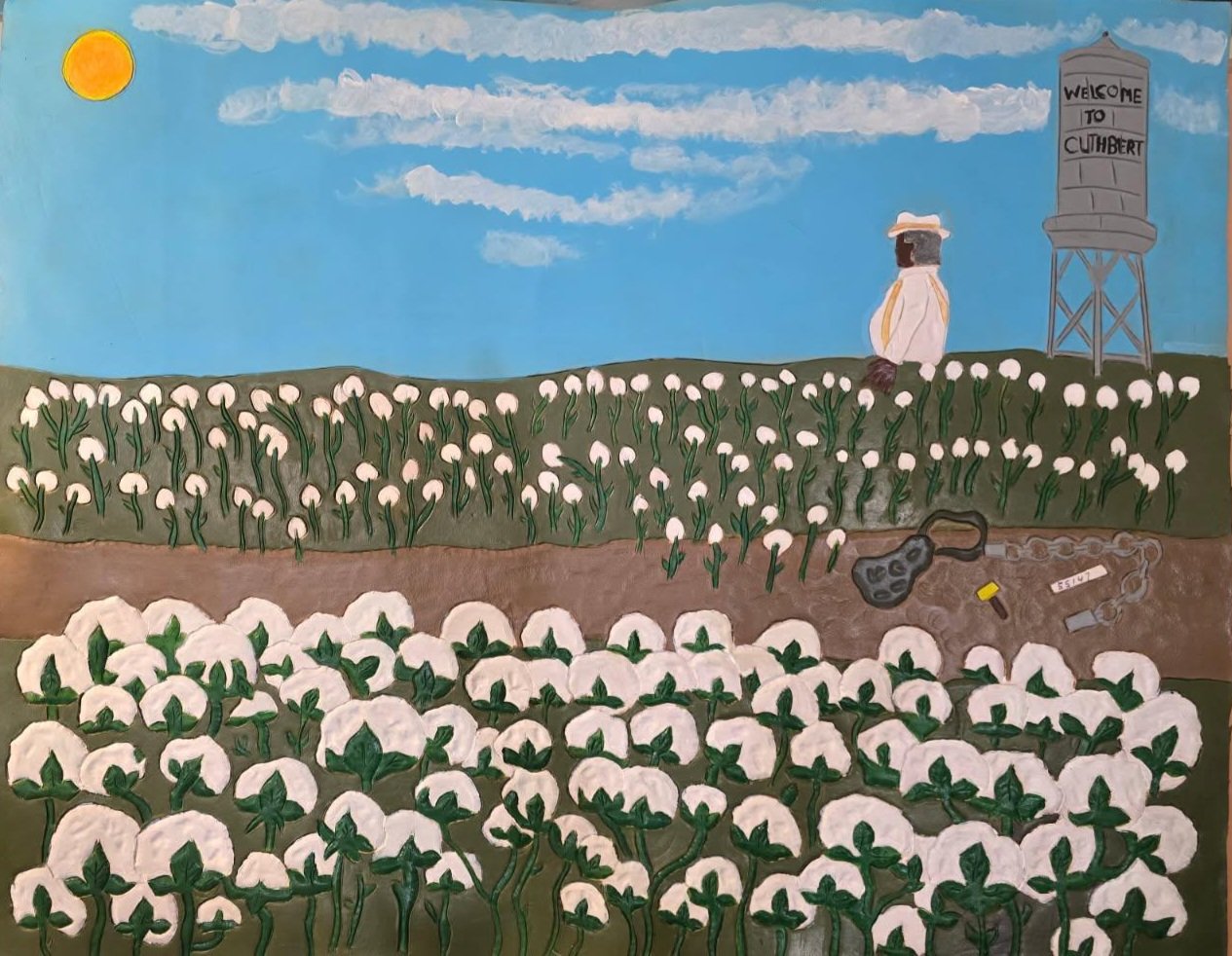
Beyond The Sunset
Set against the cotton fields of Cuthbert, Georgia, this contemplative landscape reflects on place, memory, and inheritance. Anchored by the town’s water tower and a solitary Winfred Rembert Sr. The work invites quiet engagement and sustained reflection.
Private Collection.
-
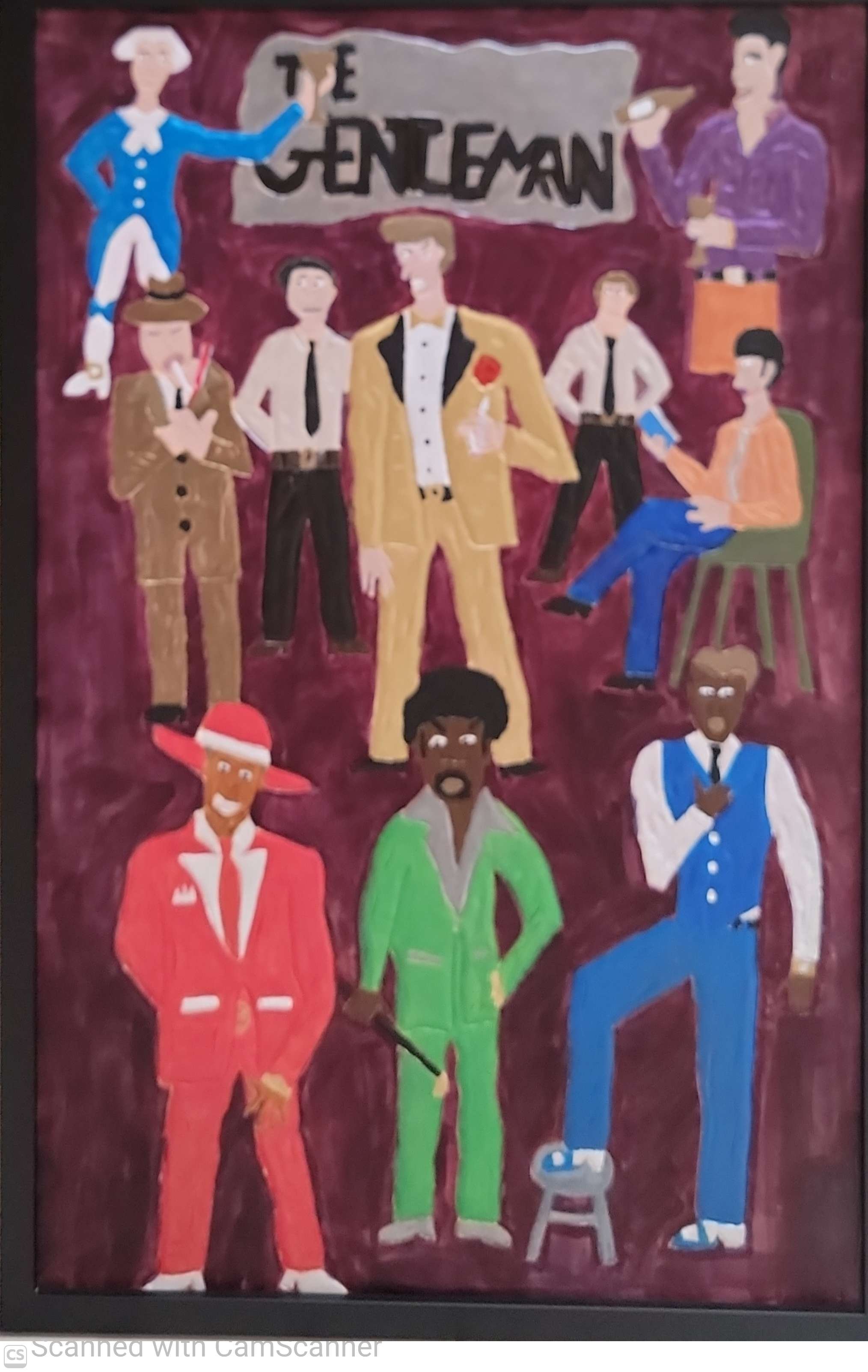
The Gentlemen
A figurative composition exploring identity, presentation, and self-fashioning through stylized characters. The work blends humor and social observation, offering accessibility without sacrificing conceptual strength.
Available via gallery consignment or private placement.
-
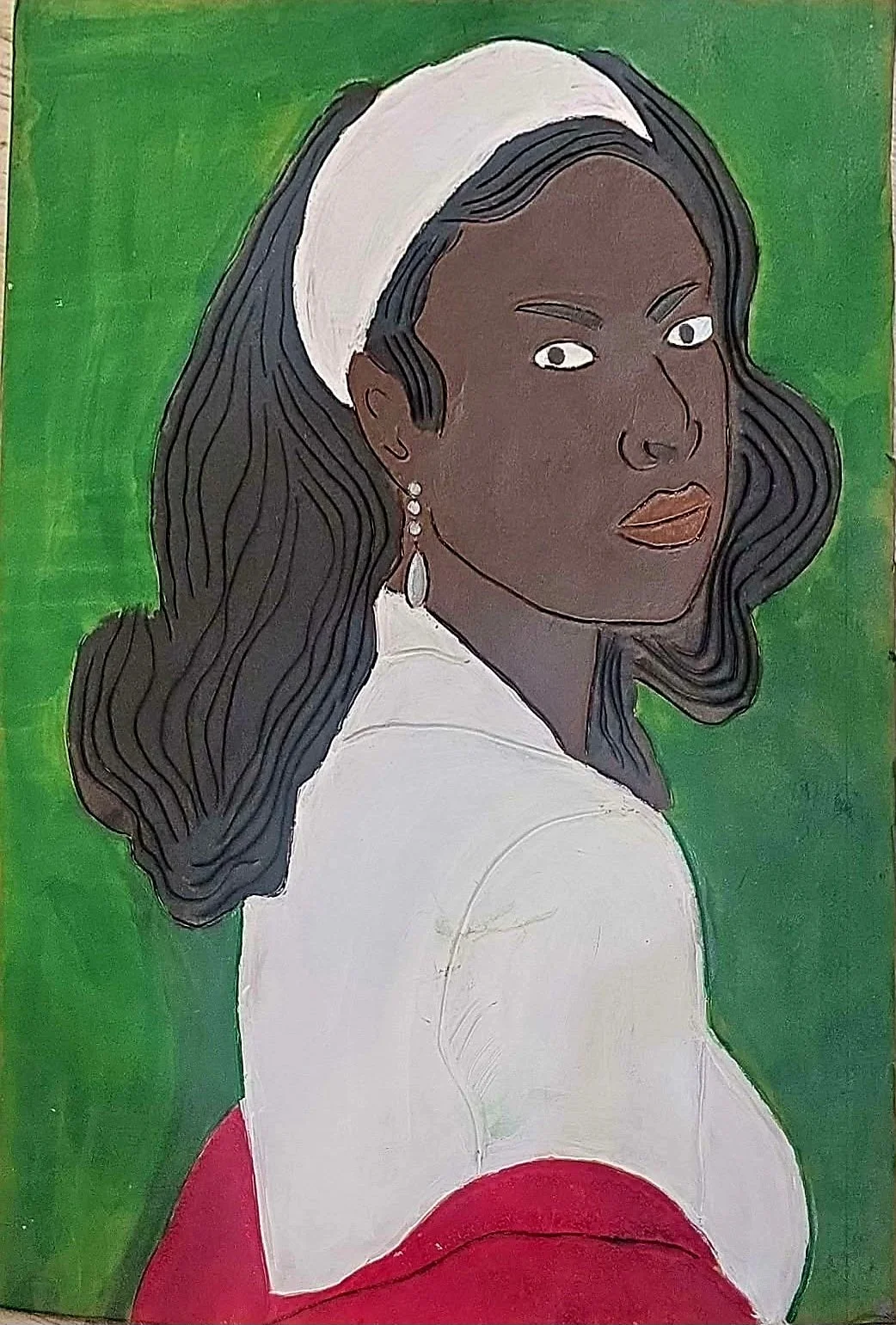
Between Points
A poised portrait of a young woman absorbed in a tennis match, rendered in bold color and clean line. Between Points transforms a quiet spectator moment into a meditation on focus and presence.
Private Collection.
-
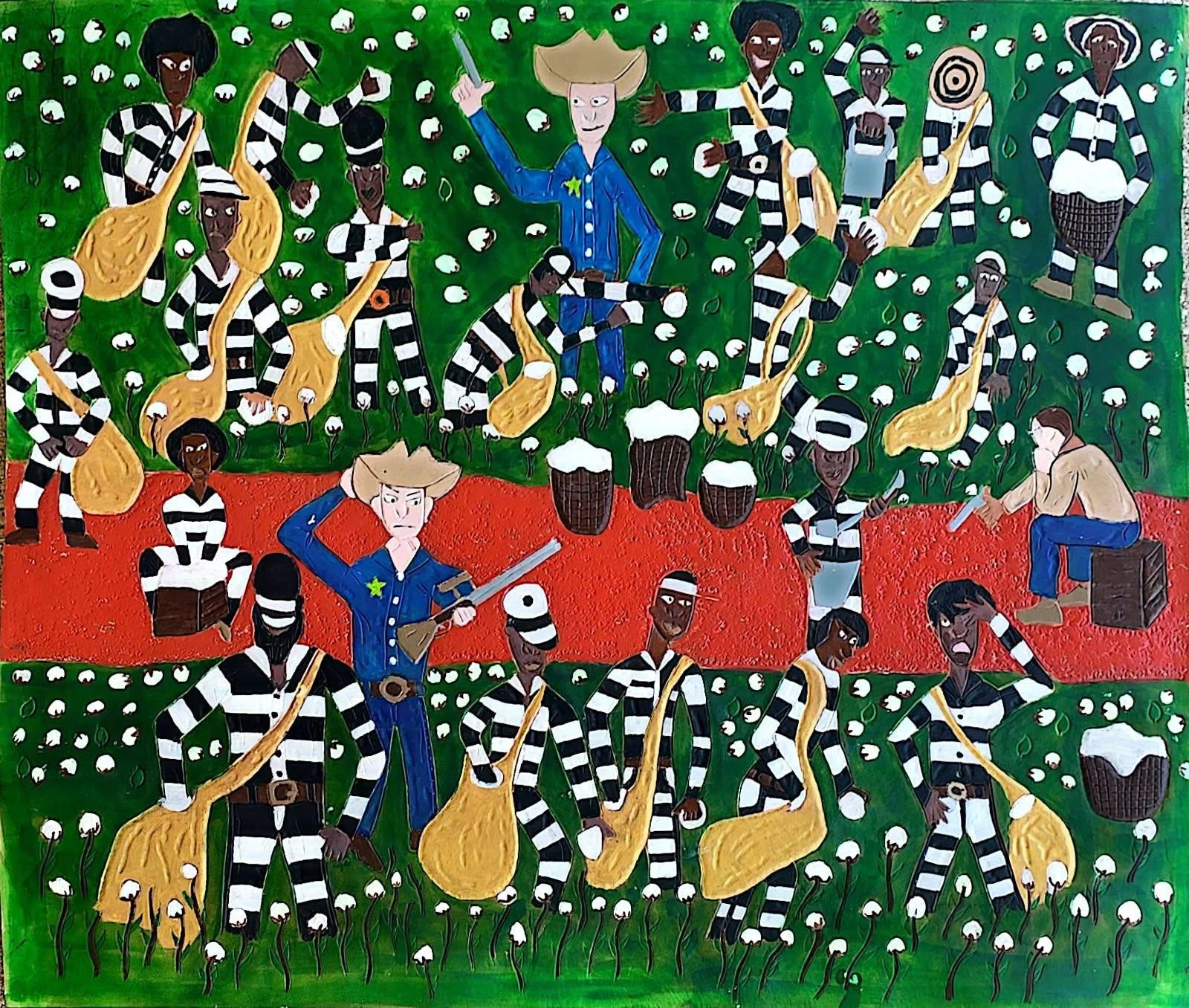
Bags Of Gold
Sweat will always weigh heavy when you toil for someone else. Modern penitentiaries, established only a few decades after slavery was abolished, created a new form of slavery—where the Negro could be forced back into the fields under the guise of “rehabilitation.” Yet the deeper issue remains how the Negro man is treated in this country.
He is seen as having no true, tangible value—not his family, not his person, not even himself. The only worth placed upon him is tied to what he produces, regardless of how that production comes about. The overseer looks across the field and sees not the man, but only his output—the endless bags of gold. Those bags, made from the Negro’s labor, enrich everyone but him. Imagine working your whole life, sweating and straining, only to realize all your effort created wealth for someone else. We never truly left the field.
-
Big Grits
Big Grits captures the pulse of a crowded juke joint alive with music, movement, and community. Musicians fill the stage—drums pounding, guitar strings ringing, harmonicas crying—while dancers and onlookers pack the floor below. Rendered in bold color and rhythmic composition, the painting celebrates Southern nightlife, shared joy, and the grit and groove of everyday people coming together through sound and motion.
-
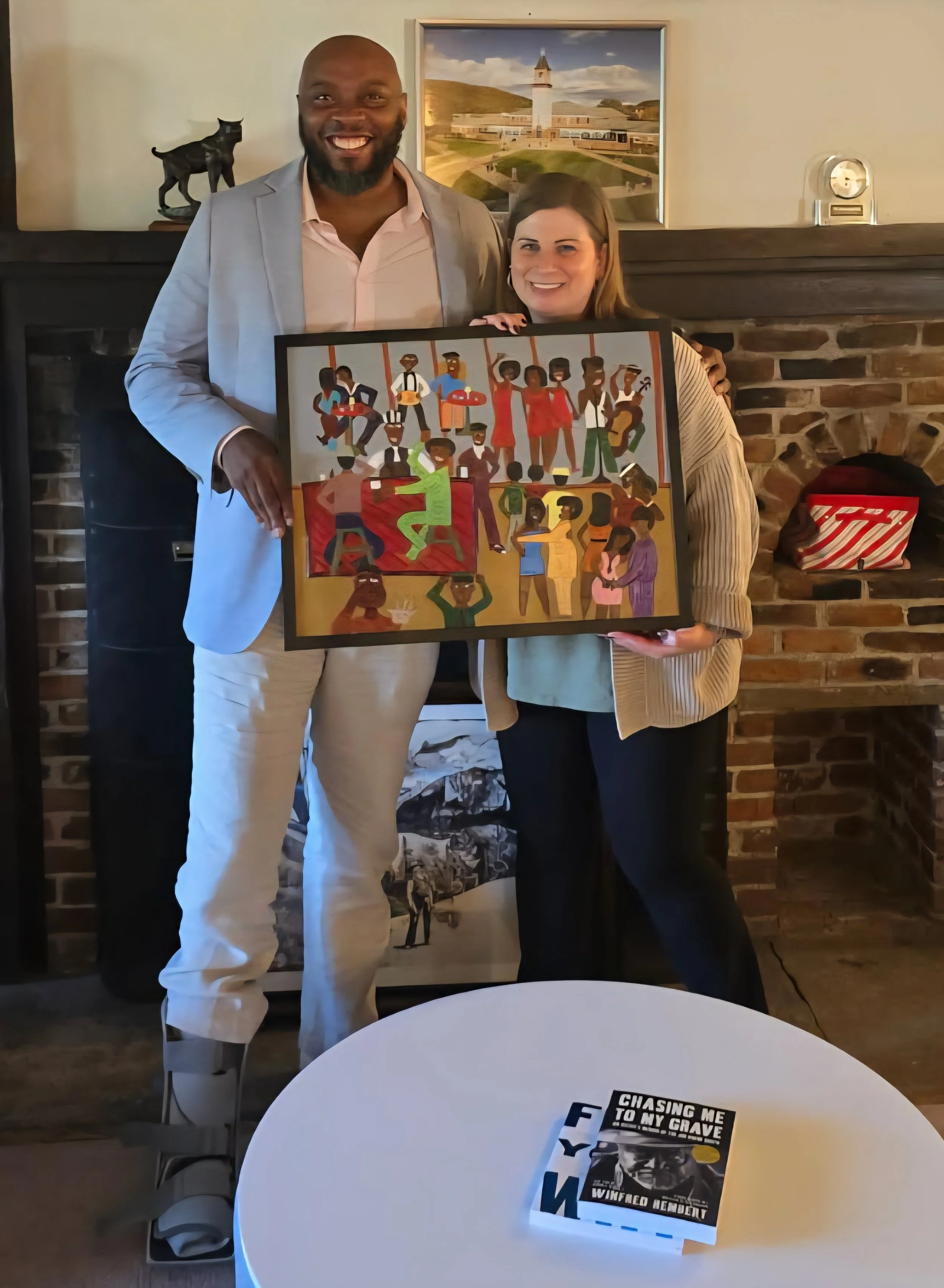
Jazz All Year Around
Donated to Quinnipiac University Community Planning Department.
During the 1950s there wasn’t any internet or cellphones. TVs were in their infancy. There was no way to know what was going on in the world on a daily basis and the radio was the source of the majority of information blacks received, as reading was still “outlawed.” This picture is of 1950’s Juke joint in rural south Georgia where live music was the only way to have songs in a club type of atmosphere. You could hear the music for at least a block from the “joint.” According to my father these places were nighttime hubs where you could forget (even for a second) all of the work and troubles from the week. People who went would talk for days about how great of a dancer or singer there were. These juke joints gave life to people who dreamt of being a soul singer like the Temptations, Supremes or the 4 tops. The radio would come to life in these juke joints as the music and dancing wasn’t the only thing being heard at night, dreams were seeping out as well. The bands would get together (if they could) during the week to work on music and dance moves. As for the patrons, some would think about Sue the cute girl in orange; if he just got the nerve to ask her to dance this week. Being a part of these places is where people's spirits and souls would come alive.. This picture is what that means a place just to have fun and enjoy being your authentic self. Everyone wore their best!
-

A Day in the Fields
This painting captures both the monotony and brutality of forced labor and the resilience and solidarity within the community. The density of figures and repetitive patterns convey a sense of ceaseless work and endurance.
-

Grace & Elegance
For you Aunt Renay.
I’m constantly in awe of the grace and elegance that define the Ingram women. Your poise isn’t just about how you move. It’s a reflection of strength, kindness, and inner beauty.I feel incredibly grateful that my wife is part of that magnificent lineage. And I’m ecstatic that our daughters have inherited that same innate grace. It feels like more than a legacy. It’s living proof that character and elegance can be passed from one generation to the next.
Thank you for setting such a beautiful example. Your presence anchors the heritage of love, strength, and refinement that continues to shape our family every day.
-

A Daisy in the Desert
Life is filled with so many choices. They are usually broken down into two choices. We are filled with decision after decision. Just one choice after another. Should I go left or right? Up or down? Do I give up today for tomorrow? All these choices and the road ahead is always straight. All short cuts bring you right back to the road you tried to avoid. The man on the road is wearing both blue and red representing the choices he has not made yet. With dangers all around, we must always venture forward. Although he hasn’t arrived there yet, even the doors on the buildings have some choices laid out.
When Tamu & I came to the Chamber of commerce we were not sure which direction to go. It felt like we were in a dessert. Uncertainty is a danger of its own. We met Nancy Dudchik and she smiled at us and has been nothing short of a blessing for us and our business. Nancy is always available to help and to assist us. Nancy has been our Daisy in the desert.
-

Back to the Cotton Field
This painting is both a tribute and a continuation to my father’s legacy. Drawing on the powerful imagery that defined my father’s work, the piece revisits the cotton fields—not just as sites of oppression, but as enduring symbols of memory, labor, and survival. Through bold figures and vibrant storytelling, I aimed to honor the voices of the past while asserting my own perspective, bridging generations through art and shared history.
-
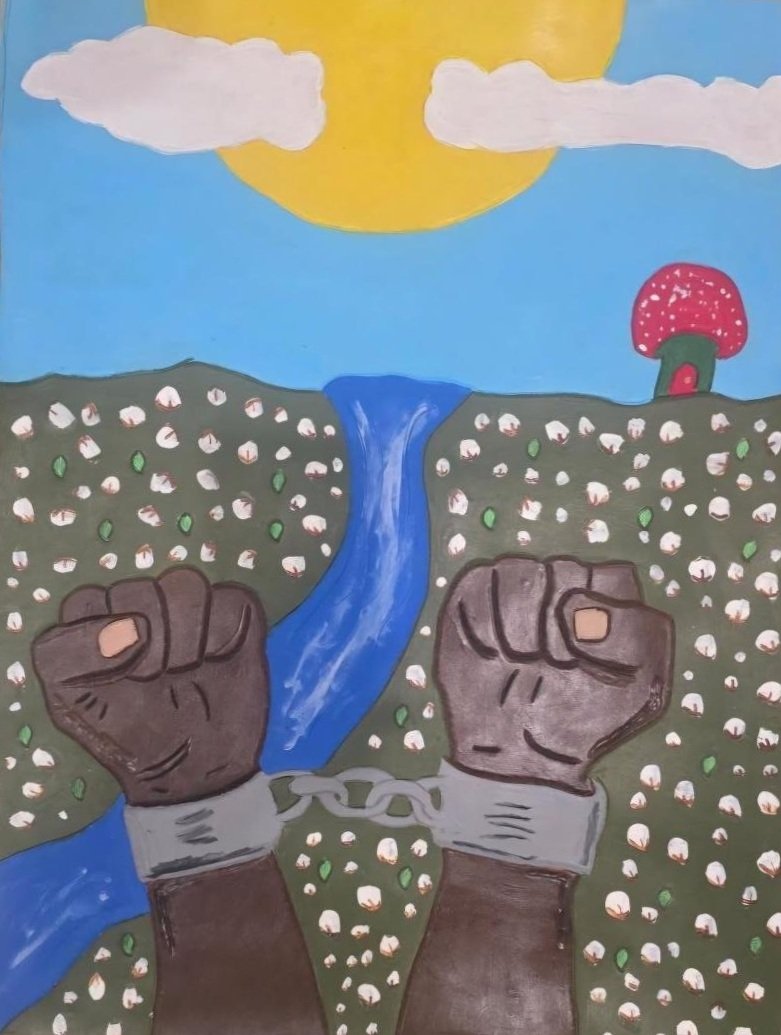
Passing On
My father wanted his story to be told after his passing and he wanted people to know he still felt trapped in a lot of ways. He felt like those chains were still on him. That he was never really free because he was haunted by his memories and his dreams. He wanted his suffering to have meaning, he wanted his work to continue.
Knowledge flows like a river and cotton fields tend to not have rivers flowing through them. Like time if you do go with the flow you can be swept away with regret and wishing for things to change. Passing on and handing down is the only way we keep from repeating the past and it is the only way we have culture. Until we can truly pass down knowledge, we will never have a culture. We will always be wearing these shackles.
-

Meditation
There is so much to do during the day. Chores from childhood become responsibilities as adults. Taking time for yourself, especially as a nurturer feels selfish at times. But it is necessary to reenergize and get through life. When we do take that time for ourselves, we can draw so much energy from things around us, if we just take the time to listen. We can draw energy from the birds in the trees, the flowers and the thin natural air. Diane does so much during the course of her day. I hope she sees this and it reminds her to take a little bit of time for herself. My wife's calm spirit and demeanor is owed to this woman. She is always giving and never asking. For you Diane, the Queen of Hearts.
-

In Paradise, But Still Chained
Owned by Binta Reid of Costa Rica, Central America
In Paradise, But Still Chained presents a striking contrast between beauty and confinement. Beneath a bright sun, drifting clouds, and a lush green landscape, two raised fists remain bound in cuffs, divided by a flowing river. The painting speaks to the tension between freedom and restraint, reminding viewers that even in places of peace and abundance, unseen chains can still exist. Through bold color and symbolic imagery, the work reflects resilience, awareness, and the ongoing struggle for true liberation.
